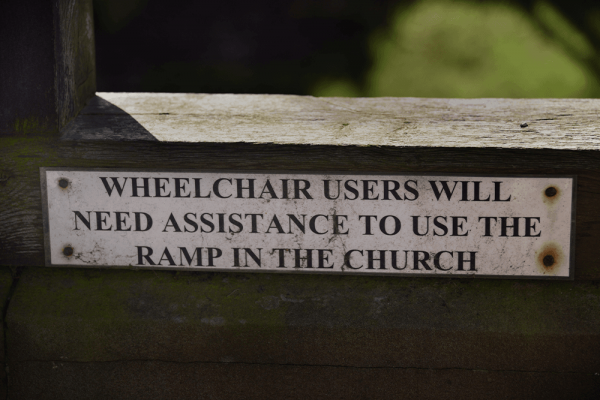Ukraine’s Eastern Rite Catholic bishops bluntly told Pope Francis at a meeting on Wednesday that some of his comments about Russia had caused great pain and were being used by Moscow to justify a “a murderous ideology.”
In July, Ryan Burge, an associate professor of political science at Eastern Illinois University and an ordained minister in the American Baptist Church, made a case on his Substack that, with the exception of the rise of those who identify as non-religious or “nones,” the most important trend in American religiosity is the rise of nondenominational churches. For those who are actively engaged in denominational life, the numbers are staggering.
When taken together, those attending nondenominational churches now make up the second largest religious group in the United States after Roman Catholics. Rising from a mere 5 percent of the U.S. religious landscape in 1984, nondenominational adherents are now estimated to represent an astonishing 22 percent.
For me, this faith has always been rooted in Jesus’ lived example of how we are to be unapologetic in our support for each other. And when Jesus says, “love thy neighbor as thyself,” I imagined this meant, well, help thy neighbor, assist thy neighbor, care for thy neighbor, nurture thy neighbor — all without condition or justification, just as Jesus did. But since then, I’ve learned a serious lesson about the limitations of the Christian imagination in politics. Despite our shared faith, many lawmakers in this country don’t seem to envision a country where we actually put these values into practice. My latest disappointment? Millions of people losing Medicaid coverage — our nation’s primary public health system that provides health care and support for folks with low income and/or disabilities — because states refuse to do the right thing.
The arrival of a child into a religious community usually sets off a flurry of activity. Someone usually organizes a meal delivery. A pastor might visit the hospital. Older parents often reach out with words of advice to the younger, sleep-deprived new parents. But when that child is born with a severe or chronic medical condition, families need more than the church can give, said Matt Steinhauer, a retired minister with the Evangelical Lutheran Church in America, former insurance broker, and the parent of a son with Down syndrome.
Two years ago, I spoke to one young woman with obsessive-compulsive disorder as part of my research into discipleship and depression. After this woman had received her diagnosis, some well-meaning but ill-informed members of her church instructed her to pray and read the Bible more. Because of their advice, she said, “I was always wrestling with whether it was spiritual warfare.” This spiritualization exacerbated her mental health struggles, adding on a religious component to her symptoms, including compulsive prayers and other spiritual practices to gain God’s favor and find healing. When it comes to accompanying young people through mental health challenges, I know the church can do better.
According to a recent Gallup poll, labor unions are enjoying their highest levels of national national support since 1965. One major reason for renewed labor organizing is the COVID-19 pandemic, as workers started to ask whether a new future for work was possible in the midst of the pandemic. Some of the demands that laborers were making then are still being made now: increased pay, safer working conditions, and flexible schedules. In the U.S., the federal minimum wage is still a paltry $7.25 per hour. Federal minimum wage has not increased since July 2009 but if it had been keeping up with inflation, it would be over $21 an hour today.
What would Jesus have to say about America’s hot labor summer specifically, and the renewed organized labor movement more generally speaking?
On the night of the 2016 presidential election, Jessica Reznicek, a Catholic Worker and water defender, began her “peaceful direct action campaign” against the Dakota Access Pipeline. Along with activist Ruby Montoya, they burned five pieces of heavy machinery in Buena Vista County, Iowa. From there, armed with an oxy-acetylene cutting torch, Reznicek went on to other pipeline construction sites and pierced through the empty steel valves, sabotaged electrical units, and burned other heavy equipment. In a 2017 statement, Reznicek wrote, “We acted for our children and the world that they are inheriting is unfit.”
Following her actions, Reznicek was arrested. She pled guilty to one count of “conspiracy to damage an energy facility,” but in the months following her court date, prosecutors persuaded the judge to add additional charges labeling her a “domestic terrorist.”
Becky McMains spends most of her life in “advocate mode.” Her 9-year-old daughter was born with spina bifida and requires substantial medical intervention and special education services. She uses mobility aids to get around and has speech delays. In doctors’ offices and schools, Becky’s questions, recommendations, and even pushback have led to change, not just for her daughter, but for other children as well. But when McMains brings her advocacy to church, she said, the response is different.
For Christians, AI poses its own set of questions: Is it bad to use AI to write a prayer or outline a sermon? Is AI able to provide counseling and spiritual direction for congregants seeking discernment and spiritual care? Can AI achieve personhood, and if so, what should our commitments to caring for them be? I found some guiding answers in Noreen L. Herzfeld’s book The Artifice of Intelligence: Divine and Human Relationship in a Robotic Age.
While there are some extreme politicians like Rep. Marjorie Taylor Greene (R-Ga.) who proudly claim the label, it’s unlikely the top Republican presidential candidates will explicitly embrace Christian nationalism by that name. Instead, voters in the 2024 election will need to be on the lookout for how candidates’ behavior and rhetoric aligns with Christian nationalist ideals and anti-democratic beliefs. Or as Jesus put it: “You will know them by their fruits” (Matthew 7:16).









